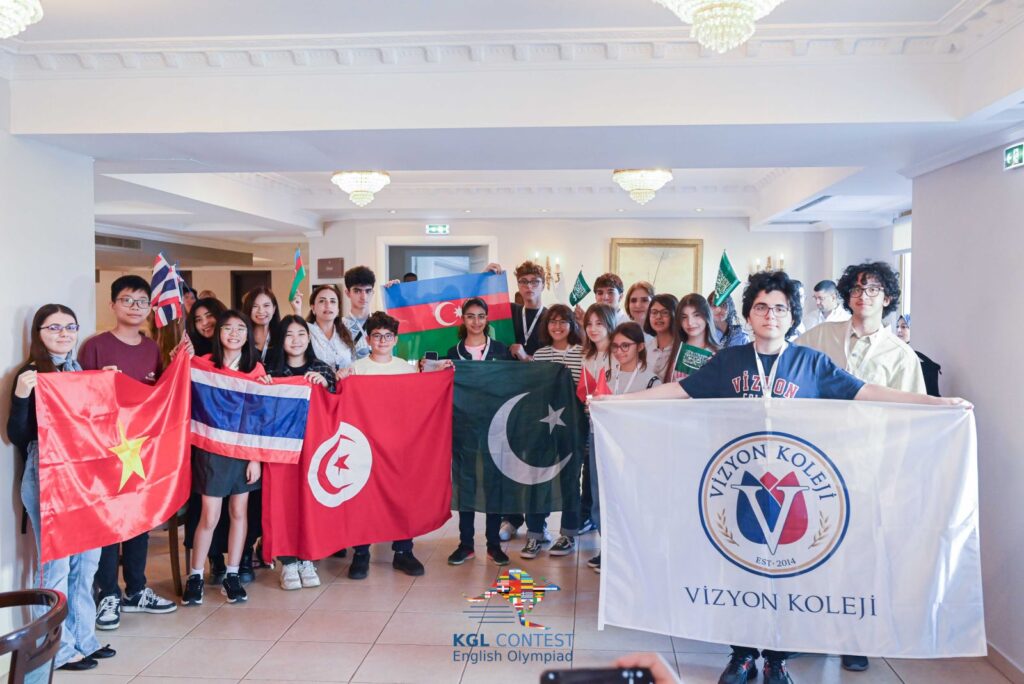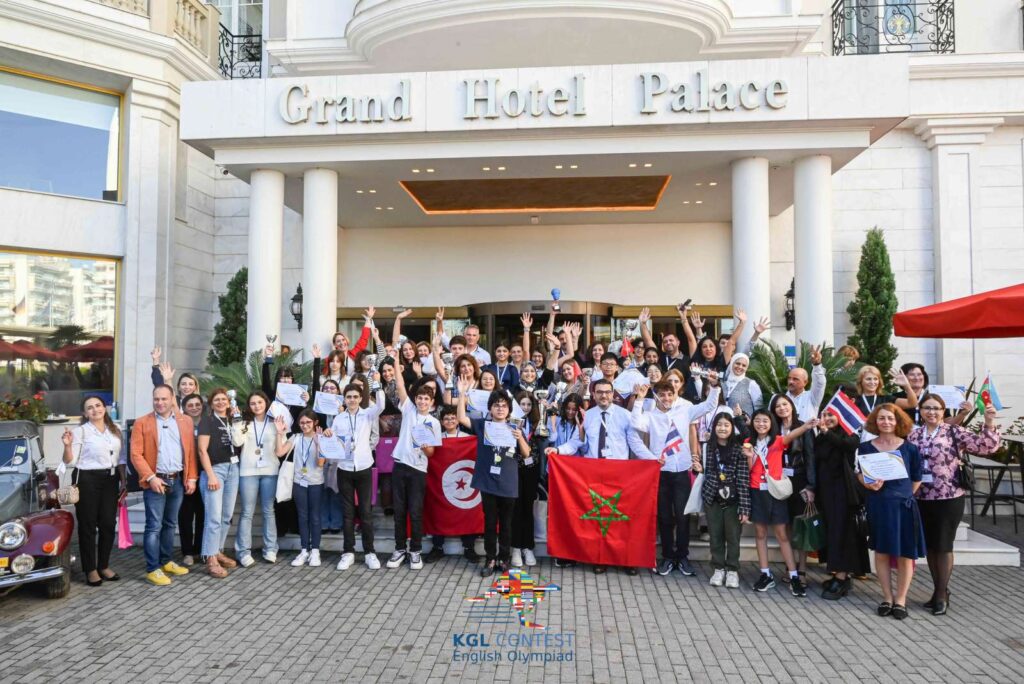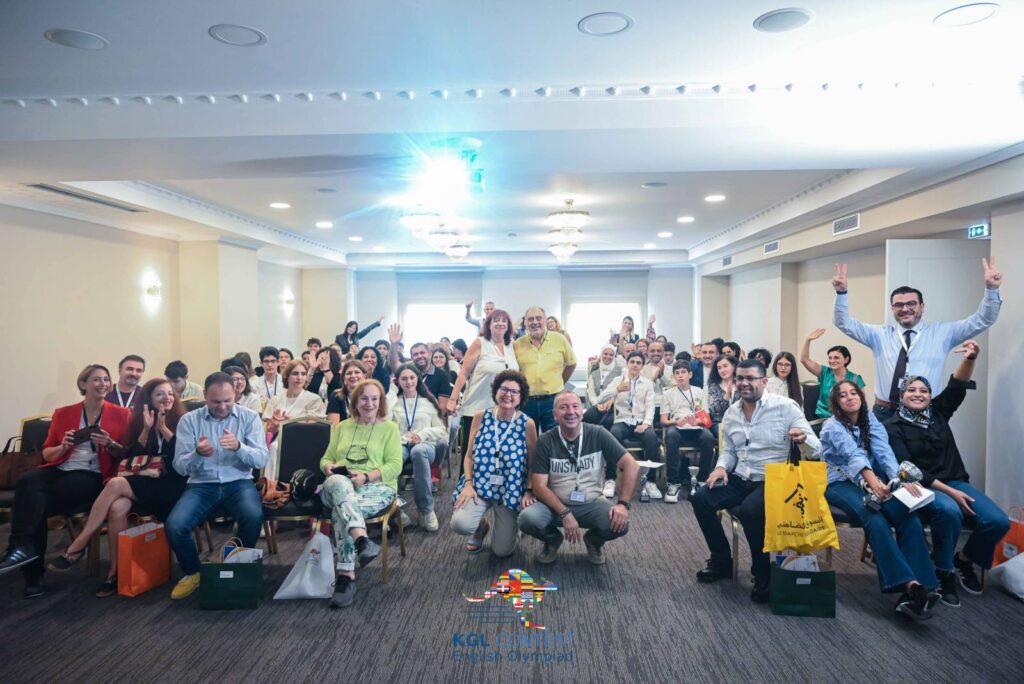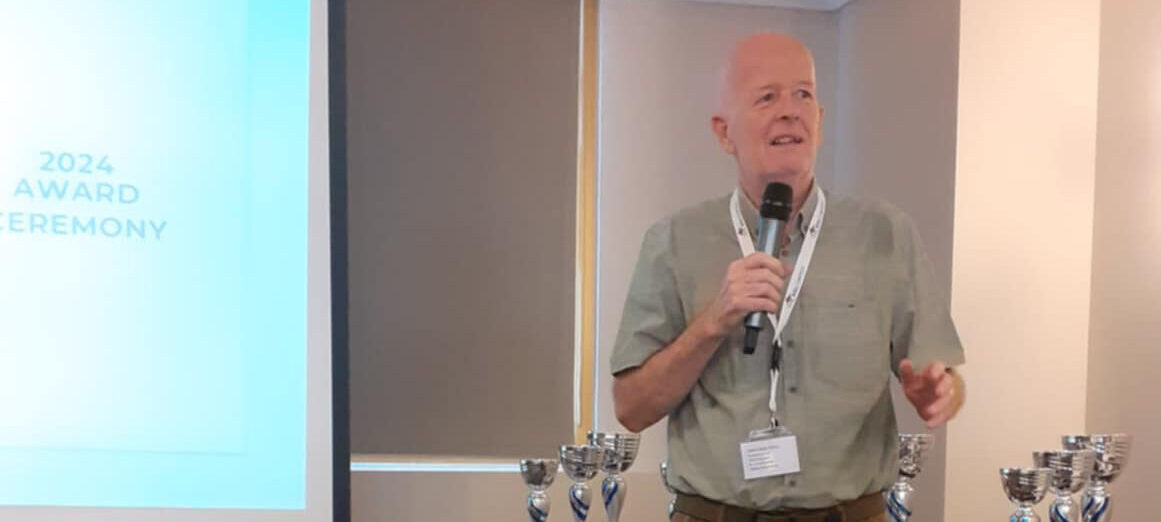Michael Carty talks to ELT NEWS about the Kangaroo Global Linguistic Contest
The KGL (Kangaroo Global Linguistics) Contest is an international competition aimed at enhancing English language proficiency among students worldwide. The KGL Contest focuses exclusively on English and is structured according to the Common European Framework of Reference for Languages (CEFR), covering levels from A1 to C1. It provides students from the ages of 9 to 17 with an opportunity to showcase and strengthen their language skills. Organized by the International Testing Authority (ITA) Ireland, the contest aims to provide students with an opportunity to showcase their English skills in a competitive yet encouraging environment
With a focus on fostering a love for the English language and celebrating students’ performance, the three-stage contest provides an engaging and rewarding experience. All participants receive certificates, while top performers are awarded prizes, medals and recognition at both national and global levels. Finalists also have the opportunity to attend the Global Event, where they compete for significant awards, including cash prizes, trophies, and the title of Overall Global Winner. Through this international platform, students gain confidence, enhance their language abilities, and experience a sense of global connection, preparing them for future language assessments and real-world communication.
Why has the contest the name of an animal?
The KGL Contest intentionally emphasizes a spirit of exploration and enjoyment rather than the pressures of a high-stakes exam. By naming the contest after an animal -the "Kangaroo"- we aim to convey a sense of curiosity, agility, and excitement in learning. The "kangaroo" symbolizes agility, curiosity, and global reach, reflecting the contest's aim to leap across borders and connect young learners from around the world. This name choice also makes the contest more approachable and memorable, creating an inviting and inspiring identity that students of all ages can enjoy and connect with.
What is the primary mission of the Kangaroo Linguistic Contest, and how does it aim to impact global language learning?
The primary mission of the KGL Contest is to promote and enhance English language proficiency worldwide in an engaging, supportive, and rewarding manner. One of its core goals is not only to recognize and reward high-performing students but also to motivate and celebrate developing students for their progress and achievements, fostering positive responses from teachers, parents, and students alike.
The KGL Contest supports the growth of English language learning by building a global community of young learners who can communicate effectively and confidently in an increasingly interconnected world. By encouraging linguistic excellence and cultural exchange, the KGL Contest helps young people build essential language skills and a broader world view that will benefit them academically, professionally, and personally.
Can you explain the different language levels in the competition, and how they correspond to the CEFR (Common European Framework of Reference for Languages)?
The KGL Contest adheres to the CEFR (Common European Framework of Reference for Languages), categorizing language proficiency into structured levels to suit students at all stages of learning. This alignment ensures that each participant competes at a level that matches their current skills, making the contest both fair and beneficial.
Contestants can compete across different levels that reflect the CEFR standards, with the lowest level being Pre-A1 (Breakthrough), where participants begin developing basic language skills. Following this, A1 and A2 levels cater to Basic Users who demonstrate essential communication skills, covering foundational language use. For more Independent Users, levels B1 and B2 allow students to engage in more complex interactions and tasks. Advanced competitors at C1 indicate Proficient Users approaching near-native capabilities, able to handle nuanced and sophisticated language.



What criteria do you use to evaluate the students' performance, and what distinguishes high-performing students from others?
Student performance in the KGL Contest is assessed across a range of language skills, including reading comprehension, vocabulary, grammar and, in Stage 2, writing and listening proficiency. High-achieving students stand out not only for their technical knowledge of English but also for their creativity, critical thinking, and effective communication. Their ability to convey ideas clearly and grasp cultural subtleties often distinguishes them as outstanding global communicators.
What motivated the creation of the Kangaroo Contest, and how has it evolved since its inception?
The KGL Contest was established in 2017, driven by a vision to provide an English-language competition that would inspire young learners and foster a global standard of excellence. Recognizing a need for a contest that could both challenge students and motivate them to improve their language skills, it set out to create an engaging and rewarding experience. Starting in just a handful of countries, the contest quickly gained momentum with the support of dedicated teachers in many countries and has since grown to include participants from nearly 40 nations. Today, the KGL Contest stands as one of the fastest-growing English Olympiads, offering students a valuable opportunity to compete and connect on an international platform. By participating, students are challenged to excel beyond the classroom environment and develop a global perspective on language learning.
What kind of prizes or recognition do participants receive, and how do these incentives encourage further language learning?
Participants in the KGL Contest have the opportunity to earn a variety of awards at both national and global levels. National winners at each level receive prizes, certificates, and medals, while runners-up are awarded medals and certificates in recognition of their achievements. Finalists travel to the Global Event, accompanied by their teachers. A major highlight of the contest is the Global Event, which culminates in an Awards Ceremony celebrating global winners, their teachers, and all participants. Global Winners at each level receive substantial monetary prizes, trophies, medals, and certificates, with an additional top prize awarded to the overall Global Winner each year. The Global Event offers not only an international environment but also fun, educational activities like tours, museum visits, and cultural exchange making it an unforgettable experience that enriches participants worldview. This high level of recognition not only motivates students to excel but also fosters a lasting enthusiasm for language learning that often continues long after the contest ends.
In what ways does the contest collaborate with schools, teachers, or educational institutions worldwide to promote language education?
Schools host the preliminary rounds, viewing the contest as a way to inspire academic excellence, foster a culture of achievement, and enhance their international reputation. Teachers find that participating in a global contest boosts students’ confidence and encourages them to believe in their ability to succeed on an international platform. Teachers of national finalists also attend the global event, where they’re recognized for their contribution.
For many students, the KGL Contest is more than just a competition -it’s an opportunity to excel, connect with peers from around the world, and experience the excitement of international recognition. As one participant shared, “Competing in the KGL Contest felt like a global adventure —improving my English and making friends from so many different places was unforgettable.” For schools and teachers this shared experience also fosters an environment of linguistic curiosity and academic ambition.
How do you ensure that the competition remains accessible to students from diverse linguistic and cultural backgrounds?
Accessibility is a core value of the KGL Contest, ensuring that students from all backgrounds can participate. With multiple competition levels aligned to CEFR standards, the contest provides opportunities for a wide range of learners. To keep participation accessible, entry fees are kept low, and local partnerships help secure sponsorship where needed. Contest materials are designed to be culturally neutral and inclusive, and an online version is available to reach students in remote areas. Recognizing the challenge some finalists face in traveling to the Global Event, we are working closely with country partners to assist them in securing local sponsorships. As the value of the KGL Contest becomes increasingly recognized, these efforts are seeing success, making participation in the Global Event more attainable for students around the world.
What future goals or plans does the organization have to expand the contest or introduce new features in the coming years?
Looking ahead, the KGL Contest is committed to expanding its global reach and enhancing the participant experience. In 2025, we are excited to welcome six additional countries, bringing our total to 45 participating nations. We’re also administering Level C1 in selected countries, with plans to make this advanced level available to more countries in the following year, allowing more students to challenge themselves in their language skills.
Our partnerships with schools and teachers are essential, and we are continually innovating in IT to streamline and further automate the registration process, making it easier and more efficient for schools and educators. This focus on digital advancements will also support our goal of increasing accessibility for remote areas, allowing more students worldwide to join the contest. Additionally, as of 2025 we are increasing the number of finalists eligible to attend the Global Event to ensure that regions with substantial participation are represented fairly and that students everywhere have an equal chance of being rewarded for their efforts.
For more information on the KGL Contest visit www.KGLcontest.org

